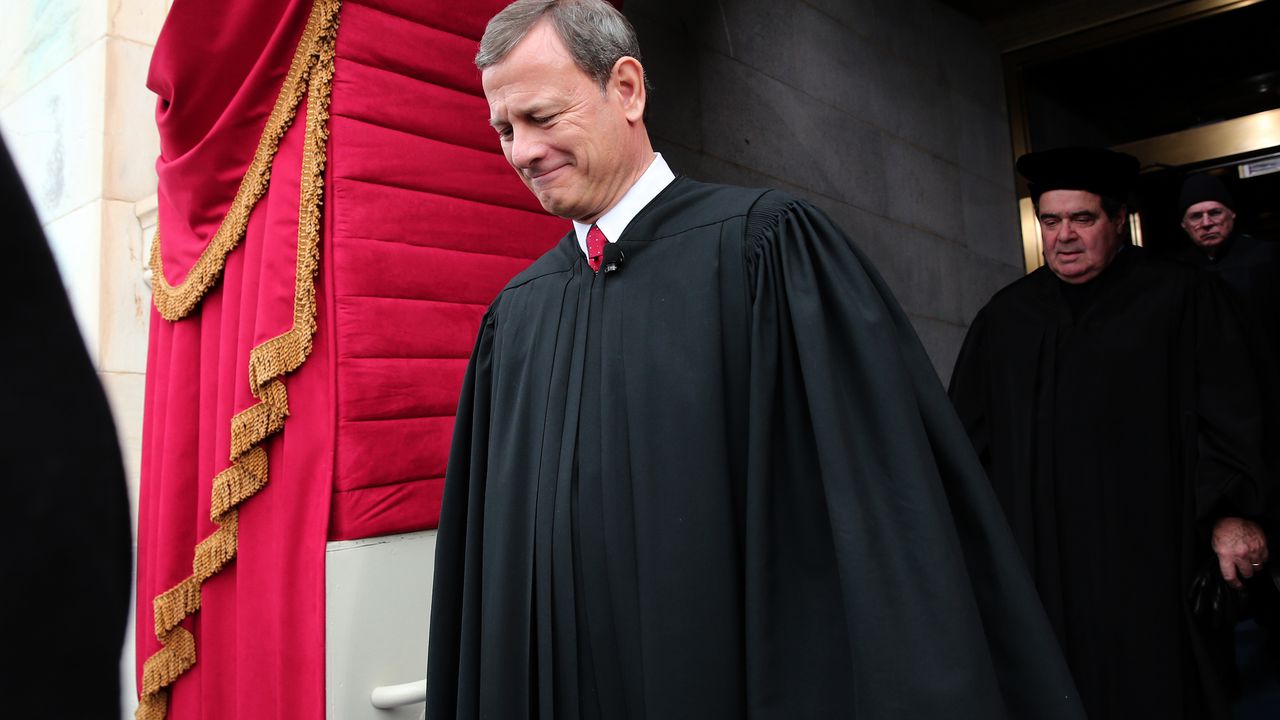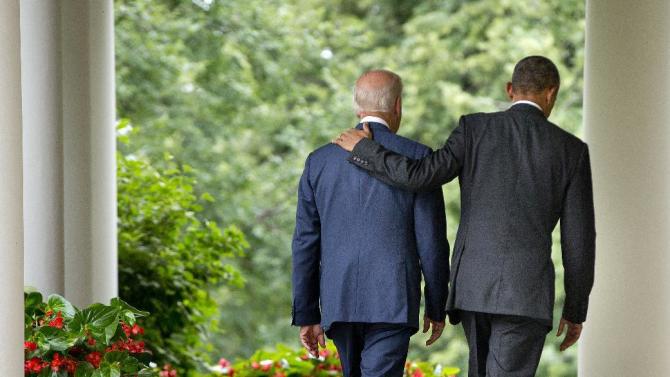I don't care how superb you're, how capable you're, how powerful you're, how smart you're, how rich, how educated, if you don't have caring mind for needy. Humans are not born equal - admitting that, you'll know what you do.
Tennis great Jimmy Connors' wife Patti made a comment sticking in my mind when she visited South Africa before Nelson Mandela succeeded. "Black: white ratio was 25:1 - if you white folk don't educate blacks, blacks will bite you white's ass someday."
Some visionary like President Obama and Supreme chief justice John Roberts did the right thing. Yes, some like Matt Romney "47% don't pay tax - don't deserve entitlement" - It's not how good you're up, but how you manage your down - a test of a mature society is how you care for those needy, needy forever reasons.
Taking care of needy is the brand of a good society. Some tolerance is a must for a stability of any human places.
****
John Roberts rescues Obamacare — again
(AP)
For the second time in four Supreme Court terms, Chief Justice John Roberts has broken with conservatives and rescued the Affordable Care Act from potential oblivion.
Roberts, an unlikely hero of sorts for the law, wrote the majority opinion on Thursday upholding a key provision of Obamacare that helps provide health-insurance subsidies to more than 6 million Americans.
"Congress passed the Affordable Care Act to improve health insurance markets, not to destroy them," Roberts wrote in his opinion Thursday.
He was joined by the court's four liberals — and, this time, traditional swing Justice Anthony Kennedy. It prompted a scathing dissent from fellow conservative Justice Antonin Scalia, who took a shot at Roberts.
This case, King v. Burwell, was long considered by observers to be a chance for Roberts to redeem himself with conservatives, who felt slighted by his decision to break with the court's right-leaning members in 2012.
He reportedly changed his vote at the last minute, delivering the majority opinion that upheld the heart of the Affordable Care Act — its mandate that individuals buy insurance or pay a penalty. Roberts said the penalty was constitutional because it was the same thing as a tax.
The key question in this case centered on whether the federal government had the ability to provide subsidies to help low-income Americans buy health insurance.
The challengers in the case argued that the way the law was written does not allow for subsidized insurance in states where the federal government had set up insurance exchanges. Instead, the challengers argued, insurance subsidies are allowed only in states that have set up their own exchanges. They pointed to a clause that they argued meant exchanges should be "established by the state," but members of Congress who were involved in writing the law disputed that characterization. Thirty-four states currently rely on the federal marketplace.
Roberts' opinion suggested he viewed the wording of the law as ambiguous but thought the intent of Congress was clear. Congress, he wrote, always had the intention of subsidies being provided nationwide.
(Reuters/Jim Bourg) President Barack Obama with Supreme Court Chief Justice John Roberts, left, as he arrives to deliver his State of the Union speech on Capitol Hill.
"Had Congress meant to limit tax credits to State Exchanges, it likely would have done so in the definition of 'applicable taxpayer' or in some other prominent manner," Roberts wrote. "It would not have used such a winding path of connect-the-dots provisions about the amount of the credit."
Supreme Court observers couldn't figure out which way Roberts was leaning ahead of the decision, as he made only two substantive comments during the case's oral arguments. That was as often as the number of times he opened his mouth to crack a joke at one of the lawyers involved in the case.
On one hand, observers said, he upheld the law last time. On the other hand, he's viewed as generally pro-business in his decisions, and multiple businesses and organizations have issued briefs on the side of the administration in this case.
Roberts' decision made clear that he subscribed to Solicitor General Donald Verrilli's argument that getting rid of the subsidies might have led to a "death spiral" for states' insurance markets.
"The combination of no tax credits and an ineffective coverage requirement could well push a State's individual insurance market into a death spiral," Roberts wrote, citing studies that predicted premiums could rise by as much as 47% while enrollment could decline by 70%.
NOW WATCH: Here are all the best moments from Donald Trump's presidential announcement
More From Business Insider
- Obama takes a victory lap on Obamacare
- The Supreme Court Obamacare case could cause chaos for millions of Americans
- The uninsured rate just experienced its sharpest drop ever under Obamacare
Obama says health law now "woven into fabric of America"
WASHINGTON (AP) — His health care legacy secure, President Barack Obama cast Thursday's Supreme Court ruling upholding Obamacare as a historic and emphatic declaration that the law has now been "woven into the fabric of America."
"This is reality," Obama said in a celebratory statement in the Rose Garden. "We can see how it is working."
Obama called the court's ruling a victory for hard-working Americans, ticking off specific benefits to parents, seniors, women, businesses, workers and more, then drawing an over-arching conclusion: "All of America has protections it didn't have before," he said.
"It has changed and, in some cases, saved American lives."
But Obama's remarks also showed that he viewed the ruling as a victory for his own presidency, recalling the setbacks and opposition he'd had to overcome along the way.
That drew a knowing chuckle from Vice President Joe Biden, standing at Obama's side.
"The point is, this is not an abstract thing anymore," Obama said. "This is not a set of political talking points. This is reality."
It was the second time Obama's health care law had survived Supreme Court scrutiny; the court also upheld key elements in 2012. The law also repeatedly has survived repeal attempts by Republican opponents in Congress.
"For all the misinformation campaigns, all the Doomsday predictions, all the talk of death panels and job disruption, for all the repeal attempts, this law is now helping tens of millions of Americans," Obama said, "and they have told me that it has changed their lives for the better."
Thursday's court ruling was Obama's second big win of the week as the second-term president tries to cement major aspects of his legacy.
His actions at times have been hindered by opposition from a Republican-controlled Congress. On Wednesday, though, Congress reversed course to advance the president's trade agenda after it had served up an embarrassing defeat just weeks earlier. And in that vote, the president worked in concert with GOP leaders to overcome significant opposition from within his own party.
Obama said there was still work to be done on health care, promising to keep working to extend coverage to more Americans and get more states to participate in an expansion of Medicaid. He voiced hope that he'd see the political battles over health care abate "rather than keep refighting battles that have been settled again, and again and again."
___
Follow Nancy Benac on Twitter at http://twitter.com/nbenac
***
The Supreme Court's Obamacare decision, in one sentence

You can read all of Chief Justice John Roberts' opinion upholding health insurance subsidies for the 34 states with federal Obamacare exchanges. But you can also understand it by reading this one sentence:
It's a simple argument: the point of Obamacare is to make health insurance markets work better and cover more people. To change the law so as to make them work worse, Roberts concluded, is to betray its clear intent.
Read more about the case in our card stack here:
- Filed under:
- Health Care,
- Obamacare,
- Policy & Politics,
- King v. Burwell
In this StoryStream
Next Up in Policy & Politics
- The Obamacare decision was not a liberal ruling by John Roberts
- Justice Scalia's sick burn: Don't call it Obamacare, call it SCOTUScare
- This wasn’t a win for Obamacare. It was a win for 6 million people who rely on Obamacare.
- Watch live: President Obama speaks on Obamacare's victory at the Supreme Court
- What Justice Scalia's King v. Burwell dissent gets wrong about words and meaning
- Justice Thomas defends racist housing practices by pointing out the NBA is mostly black


